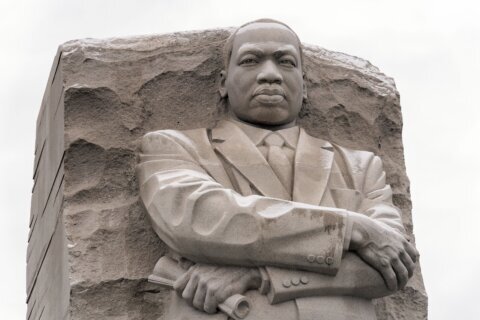Thanksgiving is just about three weeks away and the pandemic already has some folks packing on pounds, but a Maryland dietitian has advice to help prevent holiday season overeating.
“Eating should always be about nourishment and pleasure and not about compulsion and pressure,” said MedStar Health registered dietitian Wendy S. Chatham.
Her philosophy on overeating involves “honoring your hunger and respecting your fullness.”
The food-centric nature of some celebrations and the availability treats and snacks can make it easy to mindlessly graze.
“Maybe it’s a good idea just to pause for a minute and say: ‘Do I really want to eat this?'” Chatham said.
According to Chatham, denying yourself isn’t always good.
“It can cause cravings, and it also tends to cause disordered eating patterns or even causes people to overeat later on,” Chatham said.
Chatham said focusing on foods that you really enjoy eating can make it easier to trade off skipping foods that you’re not as interested in.
For example, Chatham said she chooses not to indulge in some foods because she’s looking forward to the tamales she and her family make every year at Christmas.
She also said to politely refuse people who try to push extra helpings of food on you.
“It’s OK to say, ‘No thank you, I’m full.’ Or, it’s OK to say, ‘Can you wrap some up for me so I can take it home later,'” Chatham said. “If you eat after you’re full, you’re still kind of wasting food, the same as if you threw it away.”
Mindfulness can also play a big roll in preventing overeating.
Chatham said there are myriad benefits to telling yourself, “When I enjoy those holiday foods, I’m really going to pay attention to it.”
She said studies show that not paying attention to what you eat interferes with your brain’s ability to tell when you’re full and inattention means you don’t enjoy it as much. “Not only that, it can literally keep your body from absorbing all the nutrients.”
Eating too quickly can cause you not to notice when you’re full.
Picking exercises that you genuinely enjoy can also help you burn off any excess intake from holiday meals. While exercise can burn calories, Chatham said that alone doesn’t tend to be a good motivator.
“If people can look at movement as something that brings them joy and something they can look forward to as a stress reliever — as opposed to ‘Oh my gosh, I ate a piece of pie. Now I have to go run for a half-hour — it just tends to work better,” she said.
Chatham also recommends that sugary drinks such as sweet tea, soda and juices be reserved for special occasions versus daily boosts of empty calories.








